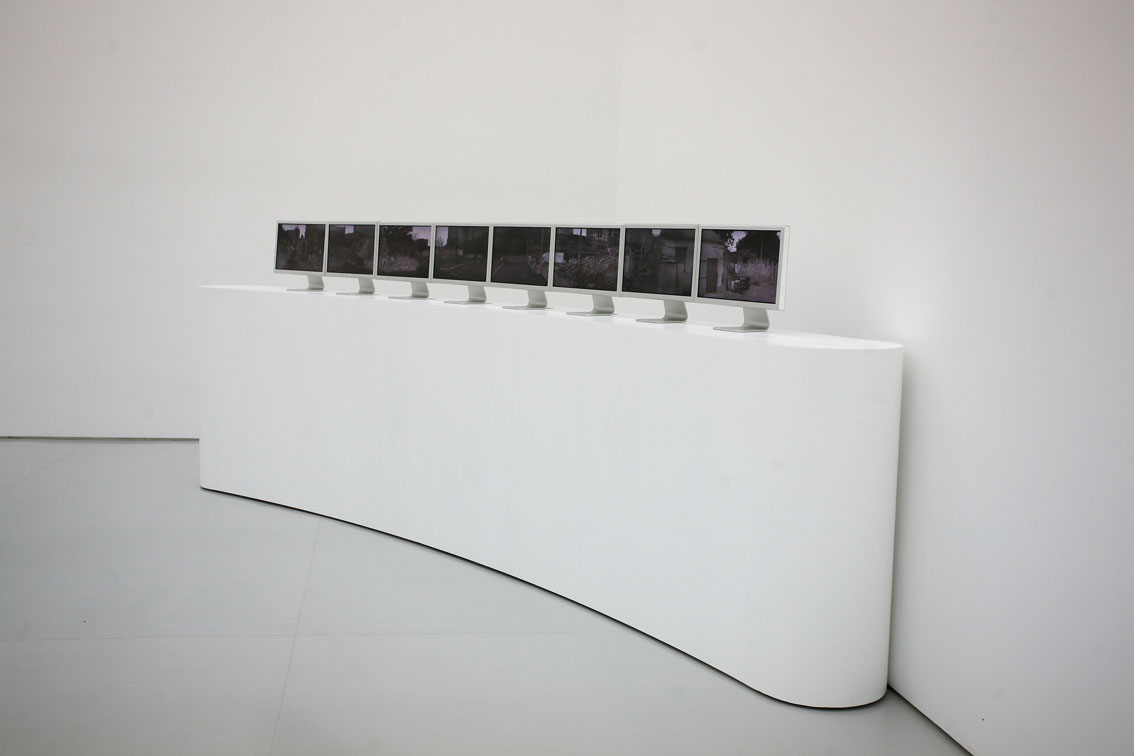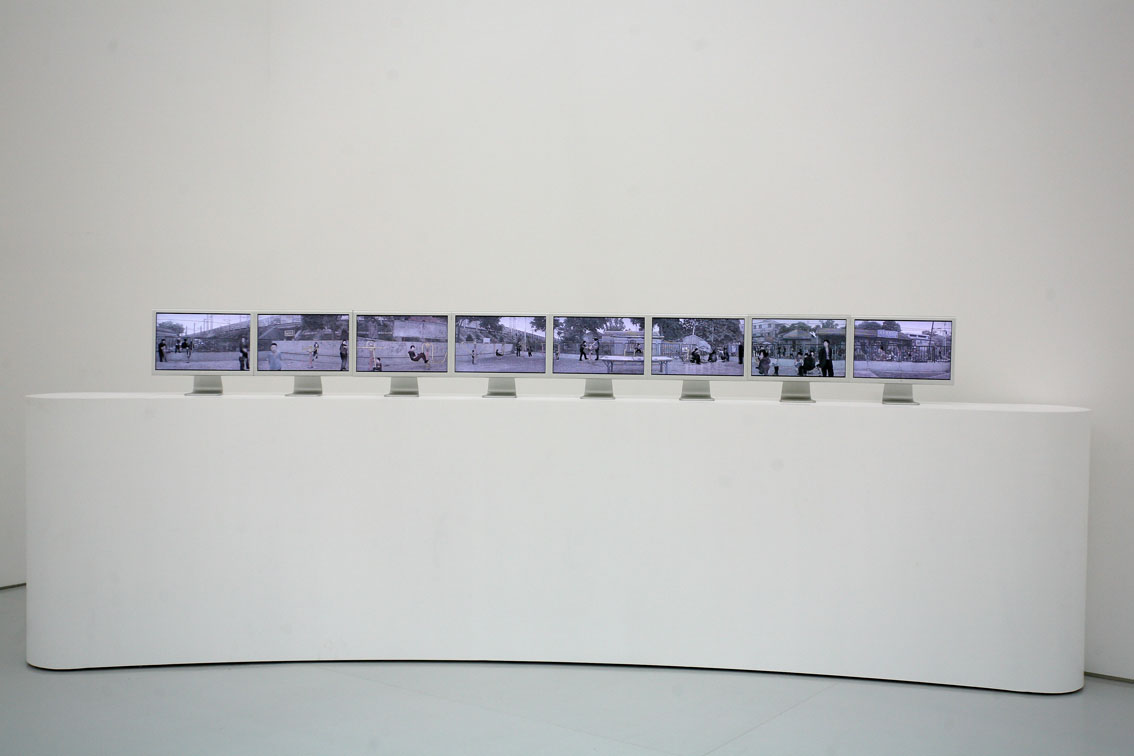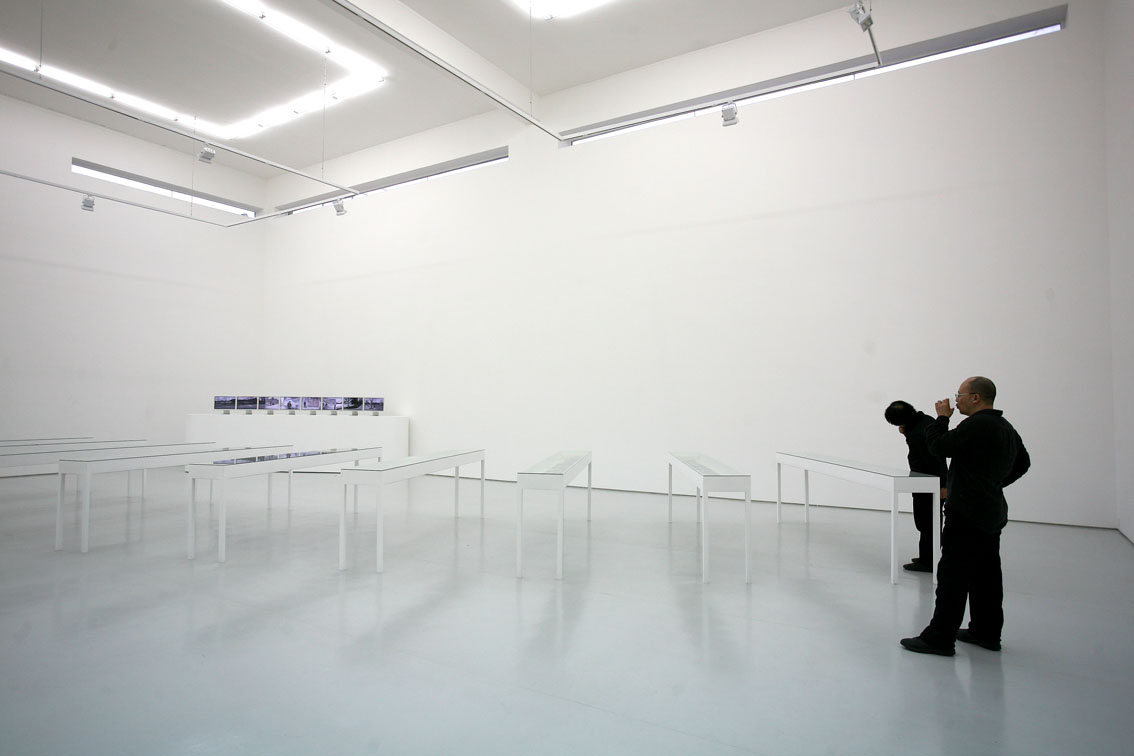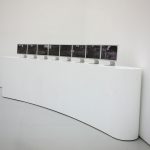
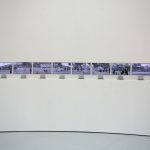
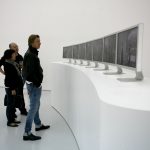
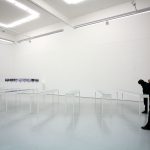
Beijing Hand Scroll
The most famous hand scroll in history is obviously Qingming Festival Along the River. This long scroll depicts a city in a detailed and vivid manner. No hand scroll can surpass this achievement. There is no way that we can use this way of observation and depiction nowadays to represent a city; we don’t have that kind of scrutiny and patience anymore.
The artist takes a picture with a special round-shot camera, then he gets an extremely long image; after computer software processing and mounting, a scroll is made. This way the artist has all the fun of enjoying hand scrolls again. This kind of hand scroll is obviously very different from traditional hand scrolls. It is not a macro overlooking view, yet it is very truthful and meticulous; it is not as concise and embracing so that one scene can represent many aspects of our lives, but it is able to cover all aspects. Therefore, the artist creates a vast and voluminous work with countless scrolls to represent a city like Beijing in order to compare with Qingming Festival Along the River in a respectful way because it fascinates him with its completeness and vividness.
Beijing Index
We all give priority to the objectivity of photographs; however, everyone has to make a subjective choice when he shoots photographs. From the point of view of a photographer we have to choose the theme, the location and the time of shooting; we have to choose the people and objects entering the frame; we also have to choose the aperture and the shutter speed, etc. But how do we handle pictures left by earlier generations? It seems like we kept all of them: some have artistic values and some have documentary values; so it is wrong to destroy any of them. Thus, the question is still how we make choices while shooting. Maybe we do not need to choose at all. There is a reason for choosing and not choosing: the former is more subjective and latter more objective; the former is more expressive and latter more documental.
The artist chose to use Seitz Roundshot. This way, he didn’t have to choose the shooting angle because it is a 360 degree view however he shot it. The artist took a map of Beijing and drew longitudes and latitudes of equal distance. The crossing points of those longitudes and latitudes would be the artist’s shooting locations. When we talk about objective recording, how objective is objective? How complete is complete? Maybe it is never too much; the more the better.
The photos were taken from May 2007 to August 2008, and part of them were done in May 2009, and the artist tried to record as completely as possible of Beijing city’s flux, humanity scene and city life.
